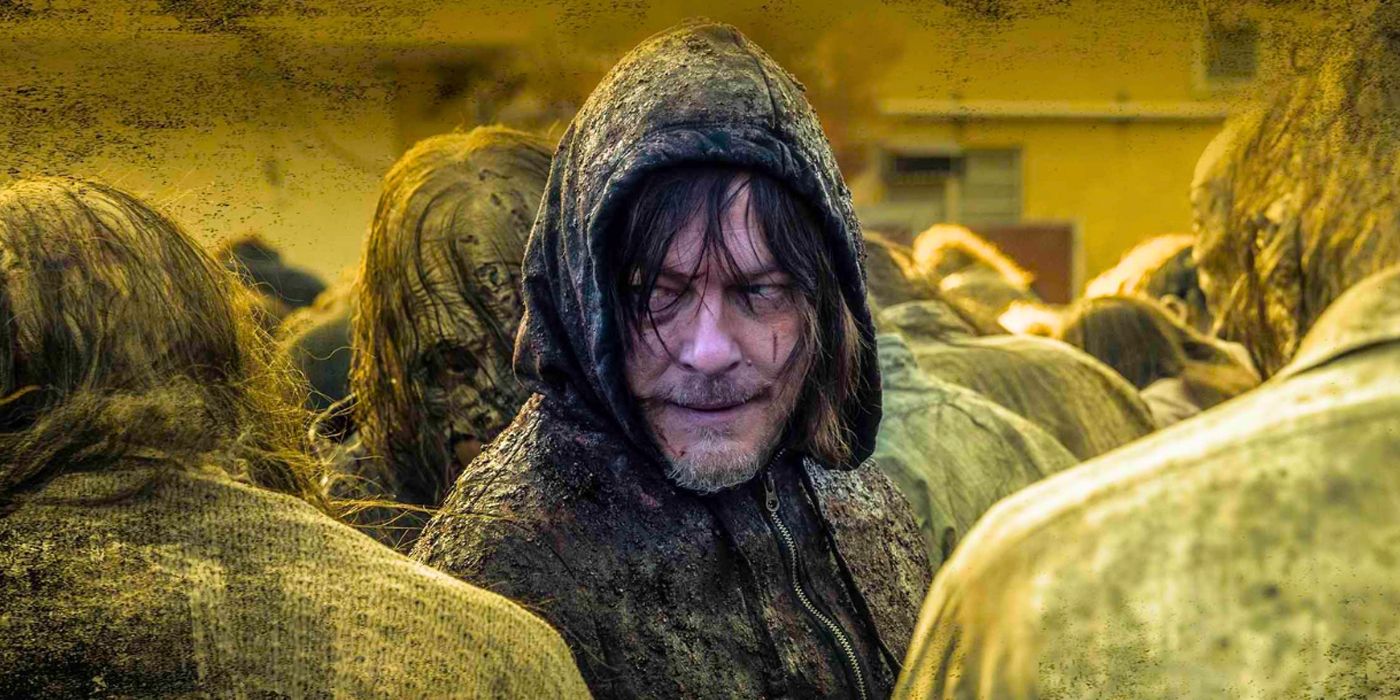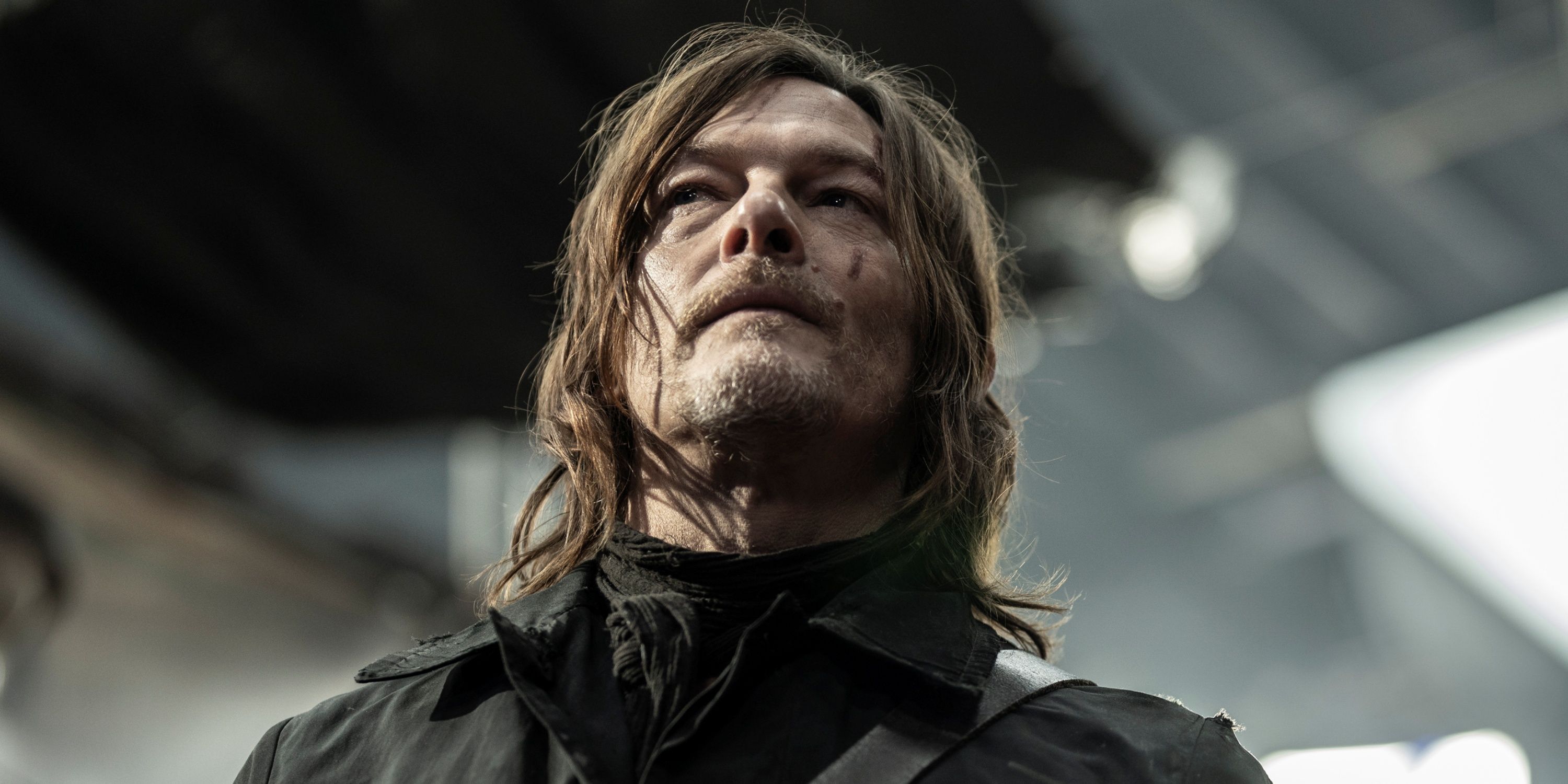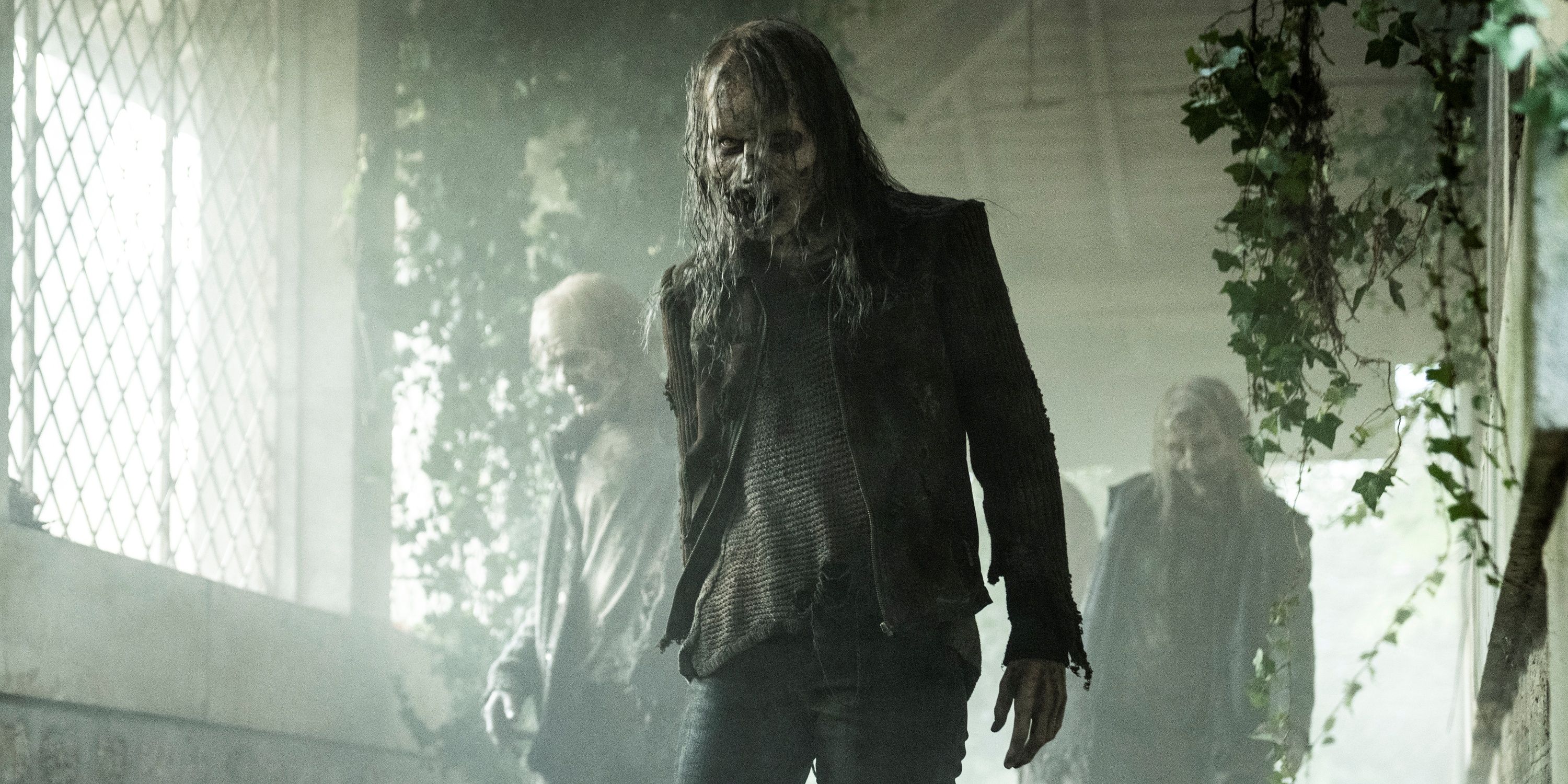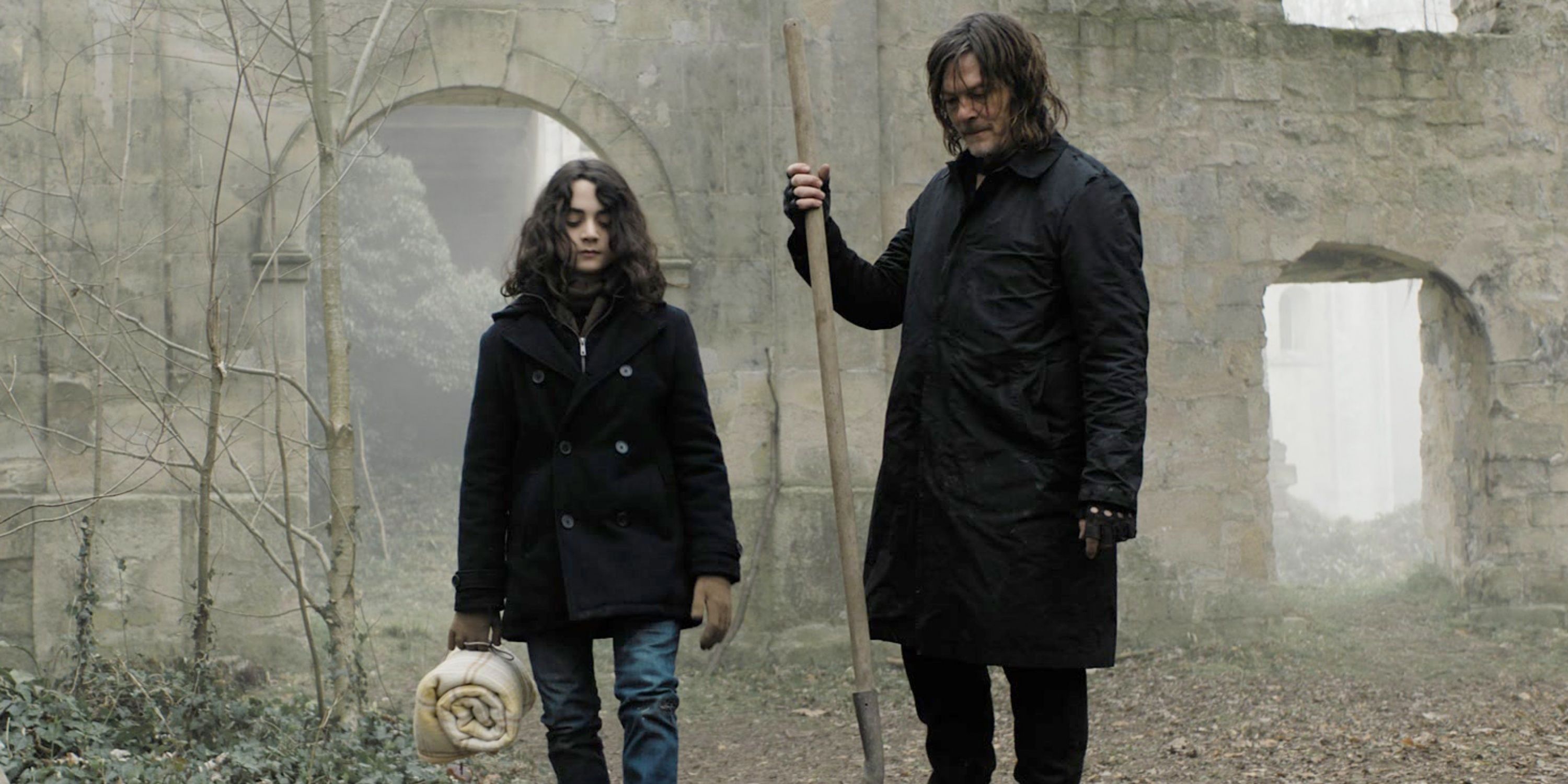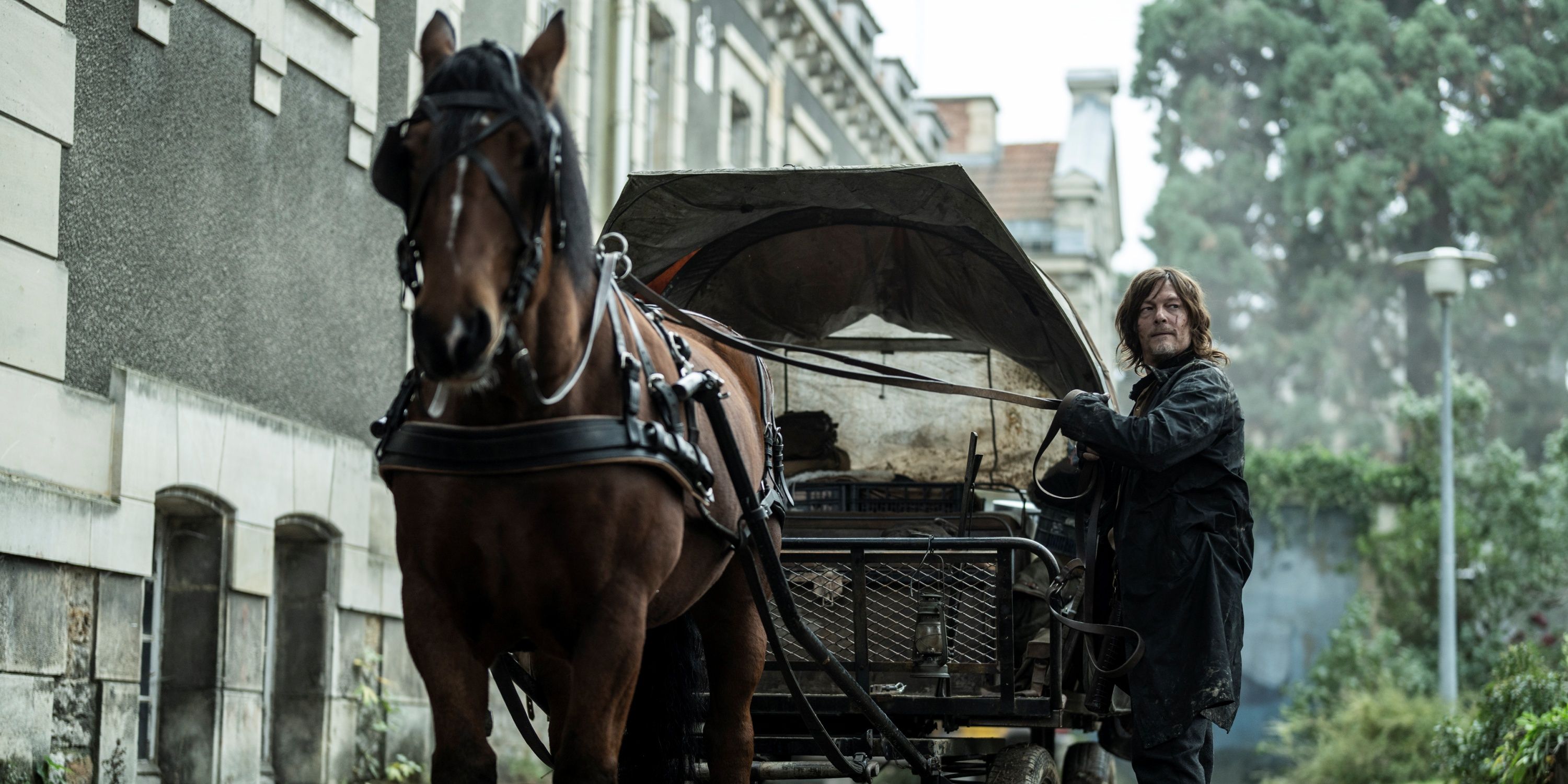The Big Picture
- The Walking Dead spinoff series, Daryl Dixon, takes place in France and focuses on Daryl's journey to find his way back home while protecting a child with the help of a nun. The show aims to change the spirit and vibe of the franchise.
- Showrunner David Zabel, along with other writers new to The Walking Dead universe, bring a fresh perspective to the show, evoking a sense of hope and focusing on individual characters' stories.
- The introduction of "burners," a new type of walker, challenges Daryl and changes the rules of survival. The spinoff series has the potential to continue for several seasons, with opportunities to expand to different regions. Greg Nicotero, executive producer and makeup effects artist, is involved in the production and plans to direct future episodes.
[Editor's note: The following contains some spoilers for The Walking Dead: Daryl Dixon.]The Walking Dead: Daryl Dixon sees the fan favorite character relocated to France, where he’s washed ashore and trying to figure out what comes next while navigating a very unfamiliar landscape. Along the way, Daryl (Norman Reedus) meets a nun (Clémence Poésy) with the goal of protecting a child named Laurent (Louis Puech Scigliuzzi) who’s in her care, and the trio find themselves on a very dangerous journey as they evade foes of both the human and walker variety, all with the hope that he’ll be able to find a way back home.
During this 1-on-1 interview with Collider, executive producer Greg Nicotero, the special effects makeup wizard for the franchise, talked about changing up the vibe of the show, the evolution of the story they’re telling, what they can do on this series that they couldn’t do with Daryl Dixon on the flagship series, how the burners came about, the DNA of the upcoming Rick and Michonne series The Walking Dead: The Ones Who Live, whether he will direct more episodes in the franchise, and the makeup effects he’s most proud of, in his nearly 40-year career in the movie business.
Collider: I’ve watched the whole season and it definitely feels different. I was compelled by the environment and the world of it all, which is so interesting to say, so many years into a franchise.
GREG NICOTERO: That was the whole reason to do it. It wasn’t just about changing the location. It was really about changing up the spirit and the vibe of the show. It’s funny because Norman [Reedus] and I talked about this show, eight or nine years ago. We were filming in Georgia and he stood in my kitchen and was like, “Man, I’d love to do a show.” The DNA of the show was like Kung Fu or Then Came Bronson, where it’s a little bit of The Fugitive, with this person who’s out in the world on their own and they come upon people, as they meet them, and their lives are changed because of it. That was really what Norman set out to do, when he initially had thought about wanting to do this spinoff. Bringing (showrunner) David Zabel on board, who’s a really, really good writer and who never wrote on The Walking Dead before, was interesting too. All of our writers were new to the universe, so they brought a new sensibility and a new field to the show.
A couple of years ago, there was talk about this being a Daryl and Carol spinoff, with them embarking on a journey together. How did that evolve into this?
NICOTERO: It evolved because, naturally, Melissa [McBride] and Norman have tremendous chemistry together and their characters are great. The conversation evolved from originally a guy on his motorcycle to going on that adventure together. Even on the poster, the show really always is about hope. We didn’t want the show to feel cynical. We didn’t want the show to go too deep into things that we had already done before. It’s really about Daryl meeting Laurent, and he’s off on this journey. It’s good to establish the world and who Daryl is, in this iteration of the show, as opposed to just starting it immediately with both characters because then you’re gonna ultimately feel like you’re falling into those same rhythms that we fell into in the original show. Having Daryl on his own strengthens the basis for what the show is created on.
What was the most fun or the coolest thing you got to do on this show with this character, that you never could have done with him on the flagship series?
NICOTERO: Oh, man, that’s really interesting. You get to see Daryl vulnerable and out of sorts. Daryl’s always the kind of guy who’s always been in control. So, to see him barely alive, trudging across the landscape of post-apocalyptic France, coming in contact with burners and coming in contact with the nuns, it really is interesting, It’s almost like we’re seeing this universe through Daryl’s eyes. Daryl has got a unique perspective on the world because he’s never given up and he’s constantly dedicated to fighting for the people around him that he loves. I really think it’s an opportunity to give Norman more of a chance to shine, as this character. In the last several seasons of The Walking Dead, there were so many characters and not a lot of storylines got serviced. There were people that would show up in one episode, or show up in a couple of scenes, but it got a little diluted. So, we really wanted to go back to the DNA of what made The Walking Dead great at the beginning, which was individual characters with individual stories. And Norman’s story is very, very captivating.
In my imagination, you have a wall somewhere of walker mutations, that you’re just waiting to work in somewhere, at some point. How did the burners come about?
NICOTERO: We really did wanna elevate the walkers and change the stakes, not so much for the makeups or the effects element of it, but for the characters. When Daryl comes in contact with the burners in the first episode, and the zombie grabs him and you see that he physically gets burned, that changes all the rules. Everything that he learned about how to protect himself is now out the window. It’s similar, in my opinion, to when we introduced the Whisperers because then there were elements where you couldn’t tell if they were a zombie, or a person wearing the skin of a dead walker, so it was instantly unsettling. We have a lot of opportunities, so we changed up some of the concepts that we did. We really wanted to pay tribute to the best of both worlds. You can still have some zombies that are a lot more energetic than other zombies typically are. It just changes the rules, which is always fun.
So far, these spinoffs have been six episodes. Do you think they will continue to be six episodes? What makes that the magic number? Do you ever shoot 12 episodes, and then split the season and hold them until later? How does that all work?
NICOTERO: Six seemed to be the magic number, when they started on Dead City. When we started shooting, there was a lot of discussion about, “Should we do eight? Should we do more?” Especially once the network started watching the footage and seeing the show, they really got excited about how different it is because it really is different. Not only does it play into the fans of the original The Walking Dead and the genre, but as proven by The Last of Us, there’s still a huge world out there who loves this kind of material. Knowing that this show falls more in that category, I think will attract more people. As we fine-tuned the episodes, there’s been more and more interest of wanting to see more, for sure.
This is a show with a kid on it, which is why I asked if you ever shoot more episodes, and then just hold them for later. Do you have to worry about the kid growing too quickly?
NICOTERO: Yeah, we dealt with that with Chandler [Riggs]. He grew like crazy. I do wanna say that Norman is an executive producer on the show and he’s incredibly hands on. I’m super proud of him and I’m really impressed because this is something that he’s been very passionate about. When we first started the auditions, he read with all the actors. Norman is a tremendously intuitive actor and a really great storyteller, so I feel really, really grateful that he’s very involved. He’ll comment on music, and he’ll comment on edits and cuts. He’s really, really involved. I think that makes a big difference, and it shows in the show. Norman is fighting for the best way to portray Daryl, moving forward.
How are you approaching these series? Do you look at them as series that could continue for five years, for seven years, for longer than that? Do you see them as more contained and more finite than that?
NICOTERO: That’s a good question. A lot of it has to do with how people respond to the show. With Daryl, because of what we’ve set up in the show, there’s a lot of ground to cover. We’ve always wanted to do a European version of the show because we have a lot of amazing fans in Spain, Portugal, Germany, and the UK. We have a lot of people overseas that really respond to the show and love it. So, this is also an opportunity to say, “Hey, our French fans, now you’re gonna get a chance to watch the show that you love, that’s shot in your country.” So, I do think that there are opportunities. There hasn’t been a lot of discussions, as of yet, as to how and why and when. I doubt that we would ever want to do something that would go 12 seasons or so, like The Walking Dead. Most of the people that started watching The Walking Dead when they were kids, are now graduating from college.
How different would you say the Rick and Michonne series, The Walking Dead: The Ones Who Live, will feel, as far as where it fits in with Dead City and now Daryl Dixon? Will that feel very different?
NICOTERO: For sure. The Rick and Michonne show really already had its DNA established. Michonne has discovered that Rick is still alive and she goes off and meets a group of people. We know, based on the end of The Walking Dead finale that I directed, that Rick is still alive and has been constantly attempting to escape the CRM (Civic Republic Military). I feel like the stage has been set for that show. It will definitely feel different from Dead City, and definitely different from Daryl Dixon. For me, Daryl Dixon is probably the most unique of the three right now because of us embracing the European sensibilities. With our directors, our crew, and our cinematographers Tommaso [Fiorilli] and Michel [Amathieu], the show looks different. It really does. It was very important to Norman and I and David, that the show not feel just like more of the same. I think that we succeeded in giving it its own identity, which I think was the biggest challenge.
Will we see you directing episodes across these series?
NICOTERO: Yeah, I think that’s a safe assumption to make, without getting too much into it. The challenge was that being back and forth to France made it a little more difficult, initially. I’ve been over there for almost a year now, so it’s been a long time. I still design all the effects. The Walker King gag in Dead City was our big highlight zombie effect. I was super proud of how that turned out. That was just really different. And I designed all the zombie stuff for Rick and Michonne while I was shooting Daryl Dixon, which was challenging.
With all the makeup effects you’ve done over the years, is there one that you’re especially proud of? Is it from The Walking Dead universe, or is it from something else that you’ve worked on?
NICOTERO: Oh, good Lord, that’s a great question. I couldn’t say one. We could talk about the makeups that we did on Sin City for Robert Rodriguez, or the creatures that we designed for The Mist or From Dusk Till Dawn. There’s a lot. And then, of course, The Walking Dead has been a great opportunity. I like having the variety to do different things, and Creepshow gives me that. We’re premiering Season 4 in October. What we get to do with that is make new creatures for every episode, which is a lot of fun.
Your work always seems like the most fun.
NICOTERO: Thank you. It is. I love it. Look, I’m 60 years old. Next July, I celebrate my 40th anniversary in the movie business. I’m grateful to still be doing it.
Well, congratulations!
NICOTERO: Thanks.
The Walking Dead: Daryl Dixon airs on Sunday nights on AMC and is available to stream at AMC+.

